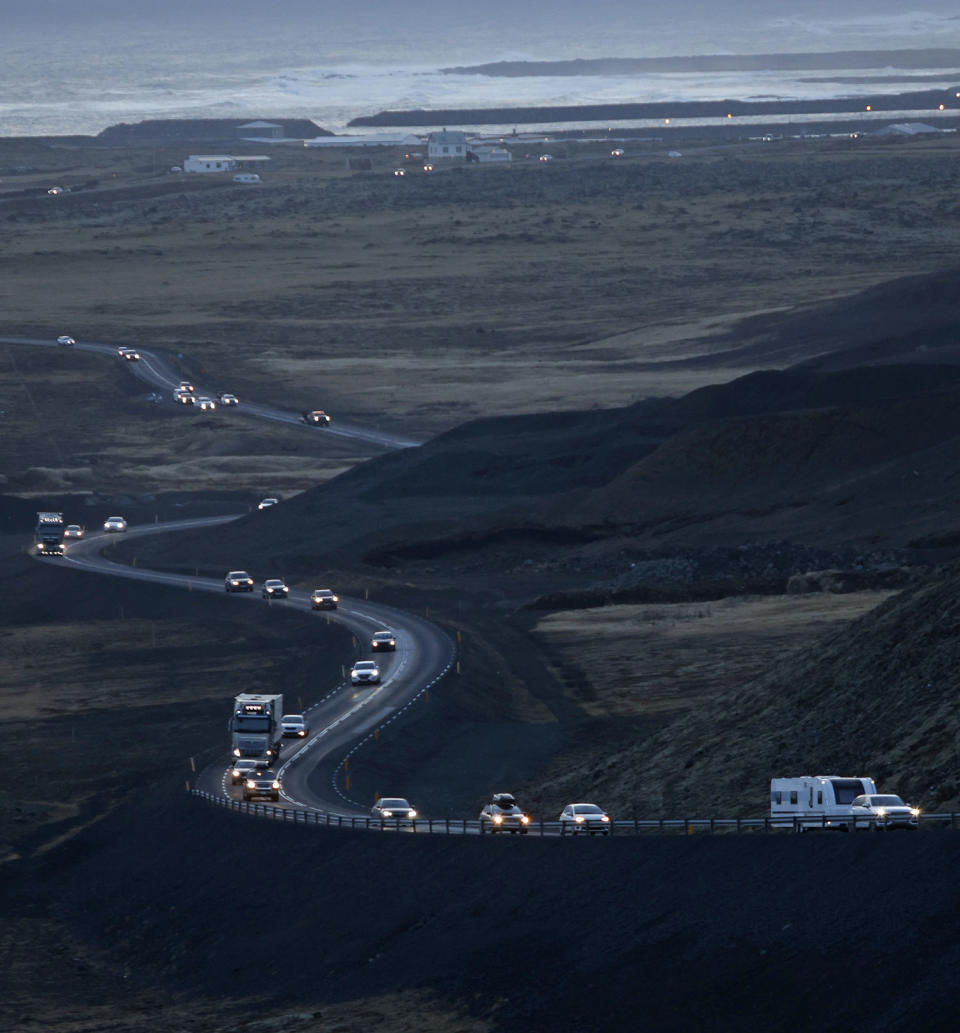As hundreds of earthquakes shake Iceland, authorities warn of a 'high likelihood' of volcanic eruption
Earthquakes are still rattling southwestern Iceland, as officials warn of a “high likelihood” of a volcanic eruption in the coming days.
Residents of the country’s Reykjanes Peninsula have been on high alert for weeks now, and the entire coastal town of Grindavik was evacuated in response to the threat.
In recent days, 1,500 to 1,800 earthquakes have been recorded daily in the region, according to the Icelandic Meteorological Office (IMO).
Intense upticks in seismic activity can be linked to the movement of underground magma, or molten rock. As such, earthquake swarms may foretell volcanic eruptions, but it remains challenging for scientists to make precise forecasts of such events.

The Icelandic Meteorological Office has been closely monitoring the rumblings of a volcano under the Reykjanes Peninsula, including the formation of a large, 9-mile-long magma chamber that snakes from Kálfellsheiði southwest to the sea, off the coast of Grindavik.
Swarms of earthquakes have centered around that underground magma tunnel, but it’s not yet clear where magma will push up from the Earth’s crust and reach the surface.
All 3,400 residents of the town of Grindavik were ordered to evacuate the area on Nov. 10. Local officials said evacuations will remain in effect until seismic activity in the area subsides.
Iceland’s Civil Protection Agency has arranged in recent days to allow evacuated residents back into their homes for short periods of time to gather basic necessities.

The Icelandic Meteorological Office said Monday that more than 700 earthquakes were recorded in the area that day. On Tuesday, that number dropped significantly, with officials saying that 165 earthquakes were detected since midnight. The agency added, however, that the drop-off may be to bad weather passing over the country that can hamper the ability of seismic instruments to pick up the smallest temblors.
“Given the weather forecast for the next two days, which indicates precipitation and significant wind, it can be expected that both the sensitivity of earthquake detection and real-time GPS monitoring by the IMO will be affected,” the agency said in a statement.
So far, operations at Keflavik Airport have not been disrupted, but the country’s Civil Protection Agency said the possibility of air traffic disturbance from an eruption “cannot be entirely ruled out.”
This article was originally published on NBCNews.com

